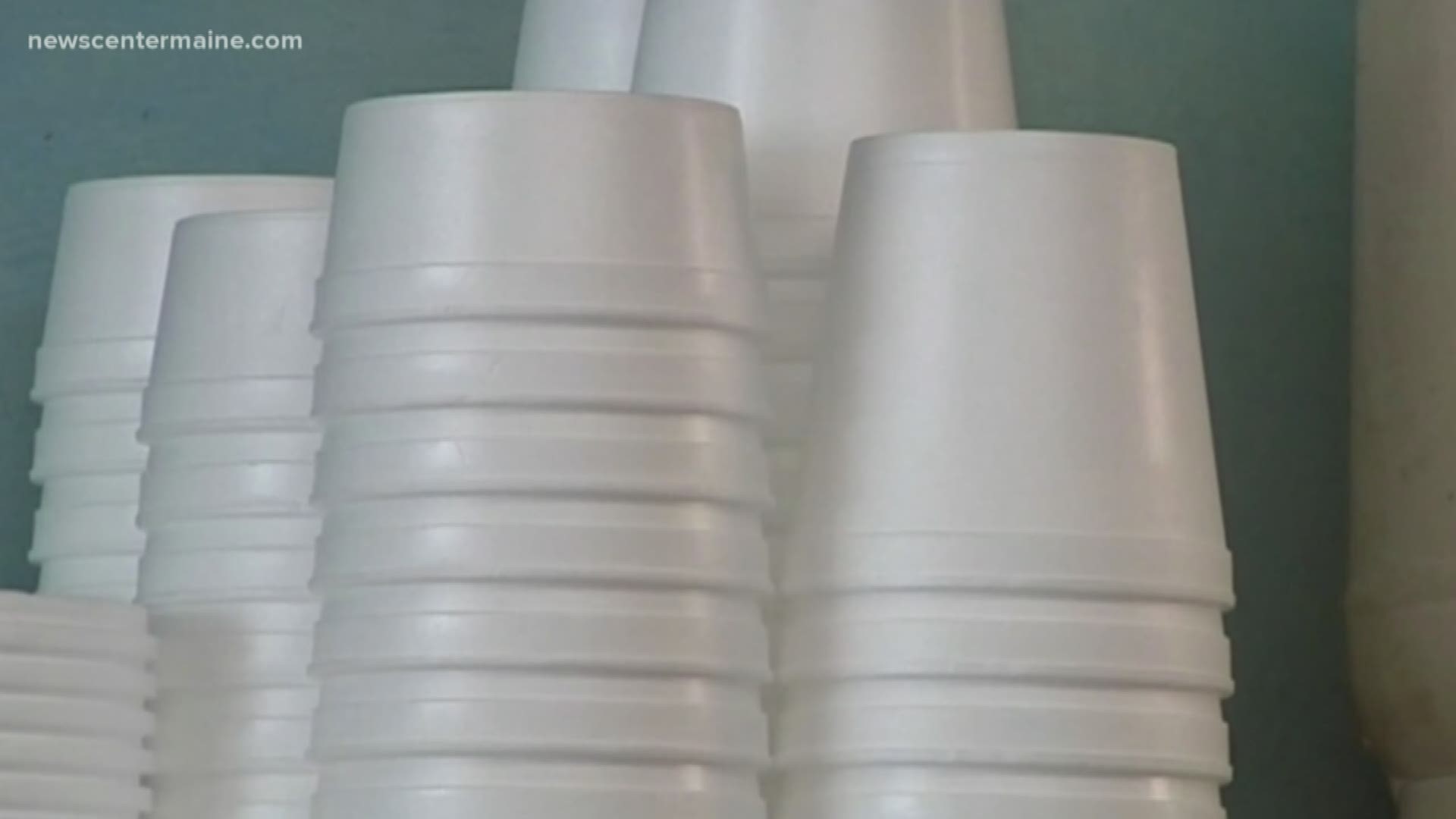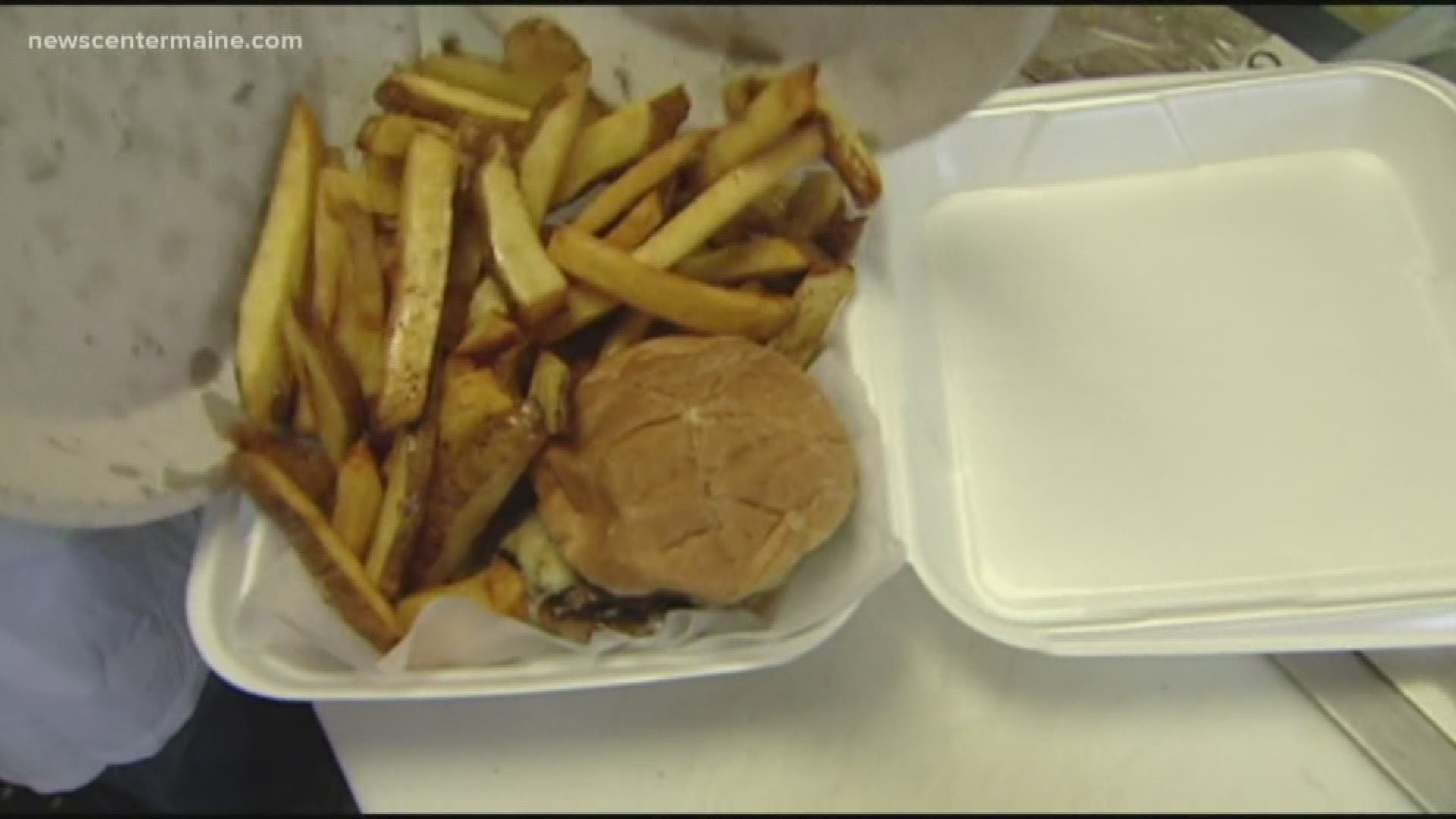BANGOR, Maine — If you live in Maine or have visited in the summers, you've probably experienced the classic outing to a seafood joint by the water -- and when that meal is over, the leftovers from a heaping portion are typically wrapped up to-go in a Styrofoam food container.
But some cities and towns around the state have been slowly trying to say goodbye to that cost-convenient but non-eco-friendly material -- and Bangor is the newest place to join the bandwagon. Starting on January 1, 2020, businesses, including restaurants, grocery stores, and even hospitals, will no longer be allowed to use Styrofoam containers when serving any type of food or beverage.
The Bangor City Council voted in May to jump-start the ban a year earlier than the mandate for the rest of the state. In April, Governor Janet Mills signed a bill to ban Styrofoam food containers statewide by 2021. Maine was the first state in the country to establish such a law.
The ordinance in Bangor states that disposable food containers made completely or partially of polystyrene, or Styrofoam, will no longer be allowed to be used by any food establishments in the city. This includes:
- convenience stores, restaurants, grocery stores, markets, or any retailers that sell food or beverages to customers
- food pantries, churches, community organizations, hospitals, or catered events
- any place that manufactures, processes, prepares, bottles, packages, handles, or stores food or beverages for retail or wholesale sale
City officials point to a desire to protect the natural environment as their reason for implementing this law earlier than the state as a whole. The Natural Resources Council of Maine estimates more than 256 million pieces of disposable Styrofoam cups, plates, bowls, platters, and trays are used statewide each year.
"This really isn't a new topic," Zeth Lundy, the public information coordinator for Bangor, told NEWS CENTER Maine. "We all know that there's no economically feasible way to recycle polystyrene. It sort of wreaks havoc on marine life."
It's why 14 other Maine towns and cities and counting have already established a similar ban -- as have more than 140 municipalities nationwide.
Jason Clay, the Director of Operations for Governor's restaurants, says that Bangor's early adaptation to the law is a good opportunity for his other locations to get prepared.
"Bangor has generally been a community that has taken a look at that type of stuff and tried to make a faster push towards that," Clay told NEWS CENTER Maine. "So, for us, it's a perfect opportunity to kind of test something at one store, get it right, and then we can roll it out to the rest of our stores statewide."
People opposed to the new law cite cost as being a reason for their concern -- but Lundy says product distributors should work with businesses and companies to try to find affordable alternatives. If businesses have leftover Styrofoam containers, they are not allowed to use them come January 1.
In Bangor, the penalty for using Styrofoam food containers is a fine between $100 and $250 for the first violation in a one-year period. It goes up to a fine between $250 and $500 for the second and each subsequent violation in a one year period.
You can find the entire Styrofoam ban ordinance for the city of Bangor here.


